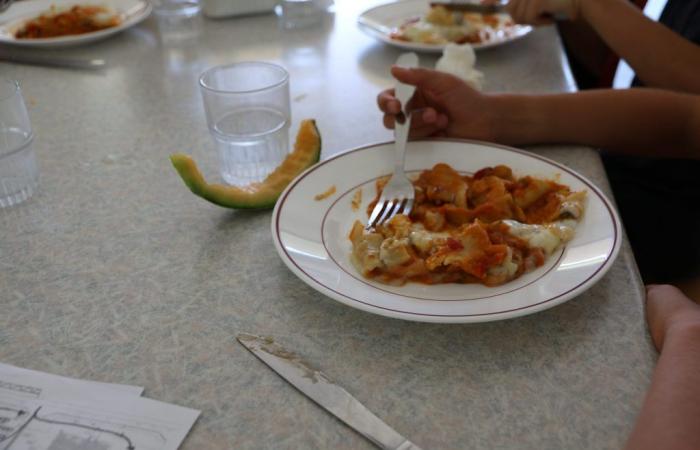The central kitchen, which delivers meals to children in municipal schools and nurseries, will move into larger premises that are more respectful of the environment and the working conditions of employees. This is the subject of the deliberation which will be proposed to the Municipal Council on June 24, 2024.
Why a new central kitchen in Grenoble?
The current central kitchen, located rue Mangin, was built in 2009 for a capacity of 8,000 meals per day. Since then, the demand for catering has continued to grow, reaching today 11,000 meals per day. This situation leads to poor working conditions for agents, working under pressure from demand greater than capacity.
Collective catering is a marker of developments in local public policies. Significant changes have already been made since 2014, which has allowed us to reach 66% organic products in school meals and 90% for nurseries. These meals are predominantly vegetarian, with a daily vegetarian option. But today we must do even better: eliminate single-use plastic, or even achieve 2 systematically vegetarian meals per week.
Technically, it is not possible to expand and renovate the current central kitchen, so it was collectively decided to build a new one in order to meet the needs of agents and regulatory requirements. This new kitchen will make it possible to offer at least 2 vegetarian meals per week and aim for 100% organic, with the daily “homemade” label. It will not only allow the city to eliminate all the plastic generated by the production and daily delivery of meals, but also to provide suitable working conditions for the agents who work there. The sizing will be around 14,000 meals per day, in order to anticipate a probable increase in demand (particularly within the framework of intermunicipal cooperation which will begin with Echirolles).
Grenoble – Echirolles: intercommunal cooperation in action
The town of Échirolles has expressed its interest in working on a shared tool, with a view to pooling resources and therefore costs. Indeed, in addition to its central kitchen which is currently unsuitable, the town of Échirolles is in line with the meal quality objectives of the town of Grenoble. The central kitchen in Grenoble will therefore also produce meals for the 2,500 Échirollois residents.
A global project responding to Grenoble’s food policies
The construction of a new central kitchen is part of a food strategy that goes beyond the school public. Whether it is associations around food, school and extracurricular activities or even citizen initiatives, when we talk about
food, all these actors are very often faced with a lack of premises or cold storage. This is why this kitchen will be identified as a resource place for all those wishing to work for the food transition. This more global “food city” project could include, for example, solidarity food spaces, family or educational gardens, or even food hall-type sales spaces.
This food city is fully in line with the food strategy that Grenoble adopted in 2023, which aims to move towards ethical food through its modes of production and consumption, inclusive in its different forms of accessible and resilient in its consideration of current and future constraints. It is within the framework of this strategy that the Social Security of local food deliberated in March 2024 is part.






